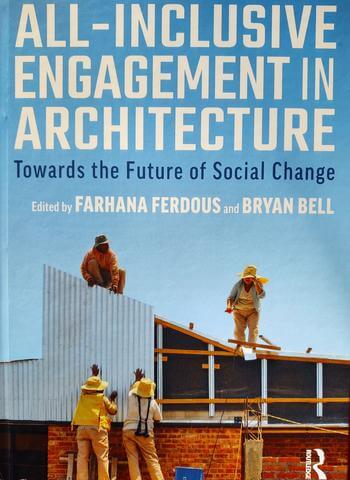Assistant Professor Farhana Ferdous Co-Editor of All-Inclusive Engagement in Architecture: Towards the Future of Social Change

Architecture Assistant Professor Farhana Ferdous, Ph.D. co-edited a recent Routledge publication, All-Inclusive Engagement in Architecture: Towards the Future of Social Change. The publication is a compilation of the works and scholarly ideas of fifty-eight thought leaders from the United States, Mexico, Canada, Africa, Asia, and Europe. Architecture is shown through these works and ideas to be a platform for social change that navigates through a range of the global politics of issues such as poverty, charity, health, technology, and neoliberal urbanism. The exclusionary basis of the discipline is also brought to light in the book’s comprehensive overview and in-depth analysis of all-inclusive engagement in public interest design.
“All-Inclusive Engagement in Architecture defines collaboration and engagement in diverse sectors of the built and social environment. Bryan and I would like to define this inclusive idea as an integrated approach of engagement to understand the process and production of architecture that can create and fulfill a future of social changes,” said Dr. Ferdous.
The main aim of this book is to generate a critical discourse on the impact of inclusive engagement in architecture as a catalyst for future social changes. The essays and case studies collected in this volume show that socially engaged architecture is both professional practice and theoretical construct.
As we experience unique historical times with continued social upheaval and political unrest, this book could not have been timelier. Dr. Ferdous and co-editor Bryan Bell demonstrate through this collection of essays and case studies how socially and community engaged architecture can help reconstruct the future of the profession and begin to eliminate disparities in our built environment.
“I applaud Dr. Ferdous and her colleague, Professor Bell, for taking on this timely and important topic of inclusive engagement. Producing an edited volume with over 50 contributors is no small feat. The work, which is presented as scholarly theoretical essays and case studies, gives educators and practitioners a way forward for wellness and resiliency as we navigate the impact of social injustices and COVID-19 experienced this past year,” commented Hazel Ruth Edwards, Ph.D., chair of the Department of Architecture.

